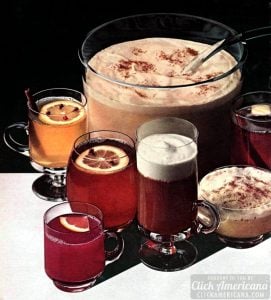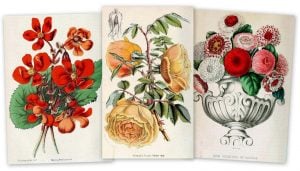Deejay Jocko Henderson: Philly’s father of rap (1989)
Excerpted from an article by Wes Smith in The Greenville News (Greenville, South Carolina) May 13, 1989
In his radio days, Doug “Jocko” Henderson was renowned for his rhythmic patter and for riding the rails. He spent seven years commuting by train each workday between New York City and Philadelphia, where he hosted top-rated radio shows.
In his spare time, Jocko hosted a television sock hop, “Jocko’s Rocket Ship Revue,” that was admired even by the competition across town at “American Bandstand.”
“Jocko had a delivery that was unlike anybody else on the air,” said that competitor, Dick Clark, who launched his own career as a radio deejay in Philadelphia. “One thousand and one deejays have copied Jocko’s style over the years.”

Jocko’s style is credited also with inspiring what is known today as rap music, according to no less an authority on American culture than the Smithsonian Institution in Washington.
“The deejay and his rhymed introductions to records is one of the most easily identified influences on rap, and deejays anywhere in the country will tell you the father of that tradition is Jocko Henderson,” said Glenn Hinson, a folklorist with the Smithsonian.
Hinson is putting together an exhibit on African-American culture that will include photographs and interviews with Jocko. “His popularity was spread far enough that Jocko had a real impact,” the folklorist said.

Teen Bopster: Jocko Rockets Skyward Every Evening at 5 (from 1958)
By William Ewald – The News-Record (Neenah, Wisconsin) May 20, 1958
I don’t know how it is in your town, but in my town at five o’clock every weekday, this rocket ship whooshes cloud-ward on the TV screen and then this voice says something like: “Greetings, salutations, oop-poppa-do and how do you do. This is Jocko on the scene with the record machine. It’s the hottest show on the vee-dee-oh… ho… yeah… and great coogamooga!”
The voice belongs to Jocko Henderson, a kind of combination Gertrude Stein, carnival barker and hipster who pilots a local (WNTA-TV) teen-age hop show called “Jocko’s Rocket Ship.”

Teen-age record hops are booming right now. At last count, there were about 50 of them bouncing around on local TV stations. However, “Jocko’s Rocket Ship” is in a class by itself.
On Jocko’s show on the vee-dee-oh, there are no “boys” and “girls” — Jocko instead addresses them all as “daddy-o’s and “mommy-o’s.”
The patter is, to me, often indecipherable, but I find it vastly engaging. “Great cooga-mooga-stooga-booga,” Jocks is apt to say, “Grab the horn and turn ’em on… hey… yea… ho… what about that, daddy-o and mommy-o. Let’s go, Jeannie, with the polka dot bikini. Cool it, baby-o, cool it. How about that… ho… yeah… great cooga-mooga!”
Jocko, a Negro, has a following of teen-age buffs that are both colored and white. Recently, according to Jocko’s statement on a show, they flooded the station with so much mail that he received a new two-year contract. Like Jocko, his fans are very, very hip.

DJ Douglas “Jocko” Henderson: Eee-tiddley-ock… Remember the Jock?
By Maralyn Lois Polak – The Philadelphia Inquirer (Pennsylvania) June 12, 1977
Eee-tiddley-ock… Remember the Jock? He launched such ‘unknowns’ as Stevie Wonder and Diana Ross.
This is about why I think Jocko — the former deejay now masquerading as Douglas Henderson, respectable magazine publisher and church fund-raiser — might be the Wizard of Oz.
Listen: “Sweetie, let me tell you about the telegram they have hanging in a Russian space museum: ‘Congratulations, glad you made it, now it’s not so lonely up here, (signed) Jocko, American rocket ship commander.’ Right when you walk in, first thing you see. They blew it up 300 times and encased it in glass. It’s taller than you are.”
If I close my eyes, he is only a voice. Ricocheting off glass shelves and white walls of his posh high-rise office, it is a familiar voice, clipped, sing-songy, syncopated, Lou Rawls with sinus.
“Actually the promotion director of my station sent it to the first Russian astronaut as a joke. I didn’t even know he did it,” he contends. “And then the Times wrote it up. They said it shared a place of prominence with shredded metal fragments from Francis Gary Powers’ downed U-2 plane…”
Hey, it has to be from such hoaxes that history, or at least reputations, are made. Remember “Eee-tiddly-ock, this is the Jock?” Remember a radio show in the ’50s and ’60s called Jocko’s Rocket Ship?
Well, that’s Doug Henderson’s sole link with outer space. These days he’s a totally terrestrial chap who delights in exhuming his legend, however technically augmented it may be.

Once Doug Henderson was the undisputed black kingpin of rock radio. He had two live daily shows in two cities — between train rides — afternoons in Philly, evenings in New York. He taped shows at home for airing in Baltimore, Washington, St. Louis and Miami, until, he says, “I did so much talking I began to look like a microphone.”
He had his own TV show, and at Harlem’s famed Apollo Theater, he launched the careers of “unknowns” named Stevie Wonder, Diana Ross, the Supremes, Marvin Gaye, Sam Cooke, Smokey Robinson and the Miracles, the Temptations, the Spinners, Martha and the Vandellas.

In his heyday, he made a record with Jayne Mansfield, though it was “never released.” He turned down “a piece of Jimi Hendrix ’cause I couldn’t understand his music to save my life.”
He had to explain to cops why three guys had held up a New York bank, shot at the ceiling and yelled, “Tell ’em Jocko sent us!” One time, “a crazy middle-aged lady” even held a gun to his head and threatened to waste him for never answering her fan mail, which demonstrates what can happen to grownups hooked on rock ‘n’ roll.
“Walking down Broadway, the first time I saw my name on a marquee scared me to death. ‘Jocko’ in 20,000 lights, four stories high, must have cost 10,000 bucks, so big, all lit up,” he enthuses. “And I came down in a rocket from the top of the stage, on a piano wire. All this smoke would rise and I’d come out with the Real McCoy on — a uniform from the United States Air Force, about $4,000 worth of gear. Those were good days, girl,” he mumbles.
“What am I talking about, great days, beautiful days. I got news for you. But I don’t miss them. I’m so happy.
“Those who used to hear me on the air and never saw me never expected me to look like this. I don’t know what the hell they thought I’d look like. My goodness, honey, they always thought I’d be a real big fat black guy. But I fooled them. Still have a 31-inch waist,” says the tall, sideburned, dapper man in his early 50s.
“That’s from playing tennis. Many, many times in Las Vegas, nightclub lights are low, I’ve had people ask me for autographs, thinking I was Rex Harrison.”
Other times, he recalls with a grin, “I signed all kinds of funny things, King Tut, Frank Sinatra, Sugar Ray Robinson, honest to God, all kinds of names, Lord have mercy. A few times they thought I was Nat King Cole. That shocked me. No resemblance, no way. See,” he jokes feebly, “they think we look the same.”
Jocko’s family was solidly middle class. His father was a superintendent of schools in Baltimore. But radio had a powerful lure.
“I had a friend who was a disc jockey… He had a big Chrysler Imperial and a diamond ring on his finger big as my eye. He lived in the finest home in town. His wife was one of the best-dressed. He worked in a nice air-conditioned studio and the heaviest thing he lifted was a record. An electric bulb lit up in my head.”
But his first job paid poorly. “I started laughing, figuring they had to be kidding, $1 an hour. During that time I was selling cars. So I took the job anyway. I thought everyone on radio was rich. Me, I worked for $12 a week. But I found it helped my car sales — in those days, you could actually talk about your cars on the air.”
He gave plugs? “Sure. When the guy told me how much it actually paid, he said he’d give me liberties I wouldn’t believe. In fact, I used to advertise a restaurant and get my free food, and clothing stores, I got my free clothing. It paid off that way. My car sales really zoomed, at least 500 percent.”
While we’re on the subject of money, I show Jocko three newspaper clippings that include him in a list of radio personalities who allegedly accepted payola from a local record company back in the ’50s.
“I never saw that in my life,” he bristles. “That’s the first time in my life. I don’t give a damn how old it is. I’ve never seen that. Well, I’ll be darned. Well, I was never called to any investigations,” he says, reading the story.
“Son of a gun. Isn’t that something? I must have seen this. I must have forgotten. It didn’t mean anything.” That’s why he has such good memories — he’s forgotten all the bad ones.
“Let me explain something to you, my love. Jocko wasn’t involved. He didn’t have to go to court… The only records I ever played were those I believed in. I was very discriminating… I wouldn’t put any garbage on the air. I took so little payola it was ridiculous.
“When I first started, I didn’t even know what payola was. A fella brought me a record and asked me to listen to it and then asked what I thought. A $50 bill fell out of the record jacket. Me, being the dummy, said, oh, my God, here mister, you dropped some money. Honest to God, he said that was for me. I said for what…?
“There were times,” he continues, “that I took favors like everybody else, before anybody knew there was something wrong. What the hell, every business does it now.”

So he doesn’t deny it?
“You say payola,” he hedges. “There were a few things and gratuities that everybody was possibly entitled to. Listen. Lisss-sen — $425 doesn’t mean a thing. That was just from one little record company.
“Christmases I couldn’t walk into my house. Presents were everywhere, and I must admit they were expensive. Gold wristwatches, gold cigarette lighters, gift certificates to the finest men’s stores, whiskey like you wouldn’t believe, cases and cases. I have a drawer full of watches.
“But I told you, if it wasn’t a good record, I wouldn’t play it,” he sniffs. “I didn’t give a damn. I took $425? My goodness, I am such a nice guy. Is that all I took?”
For the last eight years, he has published Philly Talk, which has, he claims, a circulation of 28,000. The “happy-talk” magazine is cluttered, for the most part, with fuzzy photos of fashion shows, beauty contests and Mr. and Ms. Bachelor offerings — his vision of what the black middle class wants. “Light, light, light, light, light,” he says. “I found that people don’t like to read too much… They love to see their pictures.”
It’s supposedly “a monthly, but we’ve missed some, no question about it. It sounds easy, just a little damn magazine. Well, it’s a pain. For a while, I didn’t give it my undivided attention. I wasn’t too involved. I told you I take nothing seriously. I’m not kidding.”

What did he have to learn to be a publisher? “Nothing, really, honest,” he guffaws. “That’s true. I have never been to a school of journalism. I don’t even write. I don’t write any of those articles. And I don’t read a whole lot,” he teases, then turns serious.
“Honey, how you gonna be a disc jockey and grab copy and news right off the wire without being the damndest reader in the world? I’m the best. I don’t stumble over anything, ever, sweetie.” A columnist once called Doug “the town’s fastest-talking, hardest-hitting wheeler-dealer.”
“Ummmmm-hummmmm, ummmmm-hummmmm,” he shrugs. Jocko, it’s been said, could sell air-conditioning to an Eskimo. “I haven’t sold anybody. You’re looking for an interesting story, but I swear that’s not interesting. I’m not slick,” he protests. “All I am is a gentleman, right down to my fine-tooth comb. Maybe that’s what’s wrong. If I was a slick Joe, I’d be a millionaire now. Wish I were.”
But he does put up a good front, what with his $125,000, 11-room, pink Mount Airy mansion. He calls it “my little pad;” one newspaper described it as “a spacious… palace.”
I still have the feeling he could talk his way into — or out of — anything. “Well, I don’t know how to comment on that, but listennnn, ummmmmm-hummmmm, ummmmm-hummmmm, let’s say that the experience of radio, it, uh, gets you to be a salesman, and I guess you can sell anything and almost anybody.”
Including himself. Jocko has, as they say, powerful friends in high places. Rumor once had Mayor Frank Rizzo hiring him. He’s socialized with Hubert Humphrey and slept at Governor Shapp’s house.
“Right now, my ambition is to enjoy all the life I can without doin’ a whole lot for it. God’s truth. I been working my tail off all my life. How long do I have to work to be able to take it easy? When do you give up?
“Like I told you, really, I love people,” he whispers, “and I do like people, damn it, I just like ’em. I can’t help myself. I think I’m a pretty nice fella, I really do. I’m never gonna have ulcers, don’t worry. Ever. No way. Nooo way.”
“I wish you’d quit your job,” he says. “Come work for me. You could make more damn money,” he says through clenched teeth, “than you ever dreamed of. You want some money? Hey, you wanna make some money? Do you wanna make some money?
“Honest, really honest. I want you with me. Swear-to-God. I’m not kidding. You want to make some money, don’t you? I need someone who can write their butt off. Listen,” he motions to the tape recorder, “is this on?”
Douglas “Jocko” Henderson was born on March 8, 1918, and died at age 82 on July 15, 2000.


















